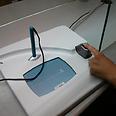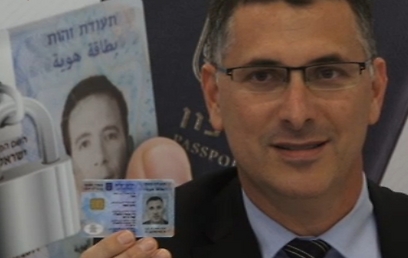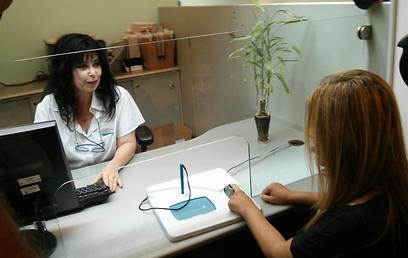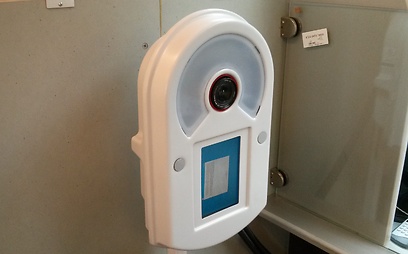
Sa'ar: No reason to panic over biometric database
After countless discussions, delays, objections, Israel launches database enabling smart identity cards. Interior minister says system meets 'highest standards of data protection preventing identity theft.' Labor's Yachimovich: Experiment on humans
Related stories:
-
Israel to issue 'world's most secure passport'
Israel to create tourist biometric database?- Experts: Biometric database system unsafe
The minister said in his speech that it was time that Israel entered the era of smart cards which could not be faked. The minister said that 160,000 identity certificates are stolen annually, and that this provides a framework for fraud, phishing, various criminal acts and "acts that harm national security." The minister addressed objections to the project saying, "There is no reason to panic.”
Saar explained that the information is "less than what an Israeli is asked to give when he enters the United States (10 finger prints)." Sa'ar also said, "The system meets the highest standards of data protection for preventing identity theft.” Sa'ar recommended that every Israeli citizen “participate in the pilot project and take a smart ID card.”
He declined to comment on the possibility of eliminating the database in case the experiment did not succeed and said, "The Knesset determined that the arrangement would continue and in another two years we will be in a position to recommend to the Knesset regarding its future.”

Sa'ar and biometric ID card
Population, Immigration and Borders Authority Director Amnon Ben-Ami said, "In another two years, all of today's arguments will seem unnecessary. We hope that the public will express confidence in this move.”
Before the event began, several citizens demonstrated outside the building against the biometric database. One of them, Attorney Jonathan Klinger, a leader in the struggle against the database said, "We call on citizens not to participate in the experiment and not to give the country a fingerprint. This experiment is a sure recipe for abuse of personal information, and leakage, definitely.”
Instead of issuing the usual blue card, in the Rishon Lezion Immigration Authority, they have set up locations for photographing and fingerprint scanning of people, and posters and educational materials encourage residents to request the “smart identity card.”

Kirshenbaum: Objections due to lack of knowledge (Photo: Roi Idan)
The Authority reported that residents came in during morning hours to enroll in the program, and were told to come back in the afternoon to get their biometric certificates.
The new identity certificate is the size of a credit card and will contain biometric information – a computer image of the person’s face instead of a printed image, and fingerprints of both index fingers. At the same time, citizens will also be able to get smart passports. The data on these documents will be stored in a national biometric database, and managed by the Authority. The goal of the database is to prevent fraud and double issues, meaning a situation where one person gets two identity cards or passports, and poses as someone else.

Biometric identification (Photo: Ehud Keinan)
In the coming months, other offices will join the experiment, which will last for two years. During this period, there is no obligation upon residents to request such certificate, and any person getting a new identity card or passport can request traditional documents.

Biometric or traditional ID, citizen's choice (Photo: Ehud Keinan)
Labor Chairwoman Shelly Yachimovich criticized the controversial project, saying "It is just a matter of time before such a database leaks to wealthy or hostile elements that may hold, for example, addresses and fingerprints of IDF soldiers."
The Labor chief called the database "an experiment on humans."
The biometric database law which has been under discussion since 2008 has caused much controversy over the issue of the database. There is almost overwhelming consensus on the need for smarter documents with electronic and biometric identification methods, but objectors to the database, which include some well known experts, claim that the project creates too great a risk, and that there are other alternatives to protecting against counterfeiting.
- Receive Ynetnews updates directly to your desktop










